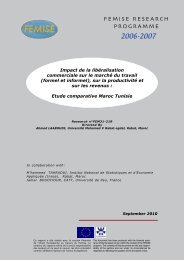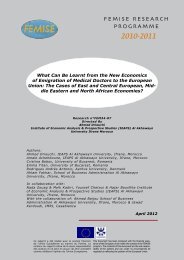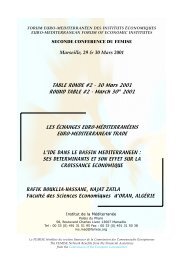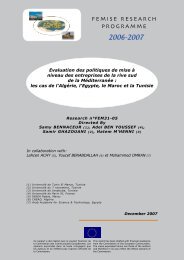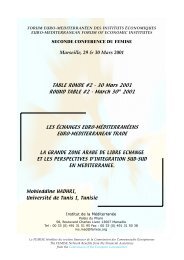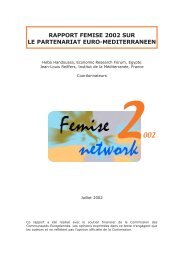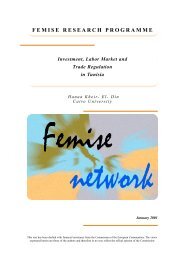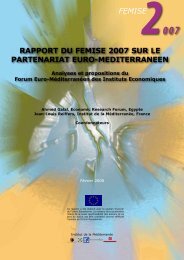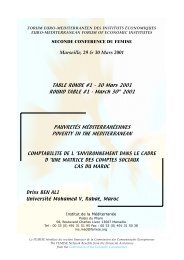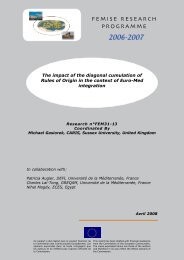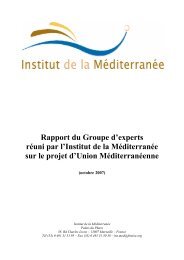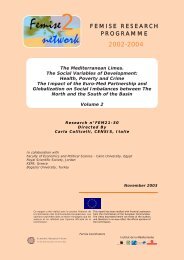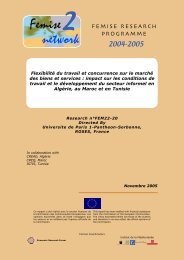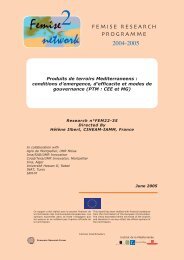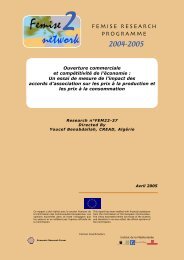PDF, GB, 139 p., 796 Ko - Femise
PDF, GB, 139 p., 796 Ko - Femise
PDF, GB, 139 p., 796 Ko - Femise
You also want an ePaper? Increase the reach of your titles
YUMPU automatically turns print PDFs into web optimized ePapers that Google loves.
signed Europe Agreements, EFTA and CEFTA agreements and reduced their<br />
conventional tariffs in line with Uruguay Round commitments.<br />
2.2. Testing Grossman-Helpman model for Israel<br />
Since 1991 Israel has moved slowly but steadily towards a very open trade regime. The<br />
average applied MFN tariff was only 8.9% in 2005. Some 46.4% of the tariff lines carry<br />
duties between zero (excluded) and 15% (included). MFN tariffs on agricultural<br />
products remain high, with an average tariff of 32.9%, and rates varying considerably<br />
among product groups. Israel has bound rates on just half of its tariff lines. The bound<br />
rates are often above the applied MFN rates, giving Israel the possibility to unilaterally<br />
raise its applied tariffs. However the significance of MFN tariff schedules is limited.<br />
The bulk of Israel’s imports is conducted within the framework of free-trade<br />
agreements.<br />
The oldest NTB in Israel is the kosher certificate requirement. Because of the power of<br />
the Rabbinate, any overseas exporter who aims to reach maximal market access and<br />
share must comply with kosher requirements. Another idiosyncratic NTB originates<br />
from its centralistic structure regarding imports. In many instances, only one firm is<br />
allowed to import a certain label.<br />
Protectionism via the use of government procurement has plagued the Israeli economy<br />
since Independence in 1948, as public expenditure is unusually high for an OECD-type<br />
economy, with the Army and the Ministry of Defence playing a central role. While<br />
Israel has been for years party to the plurilateral Agreement on Government<br />
Procurement (GPA), it has always invoked developing-country status, allowing it to<br />
implement offset arrangements. Foreign governments, particularly the one of the US,<br />
have been complaining for years, about the lack of transparency in Israeli practices.<br />
Invoking the status of developing country for applying Uruguay Round resolutions has<br />
not been limited to the domain of government procurement, but to other highly relevant<br />
issues in the case of Israel, such as TRIPS, where Israel was given until 2000 to change<br />
its law on intellectual property.<br />
14



